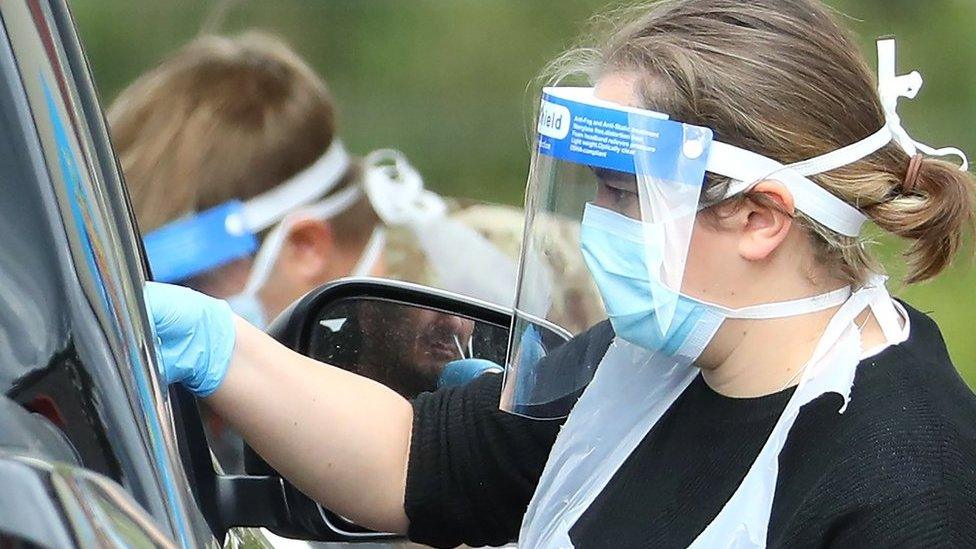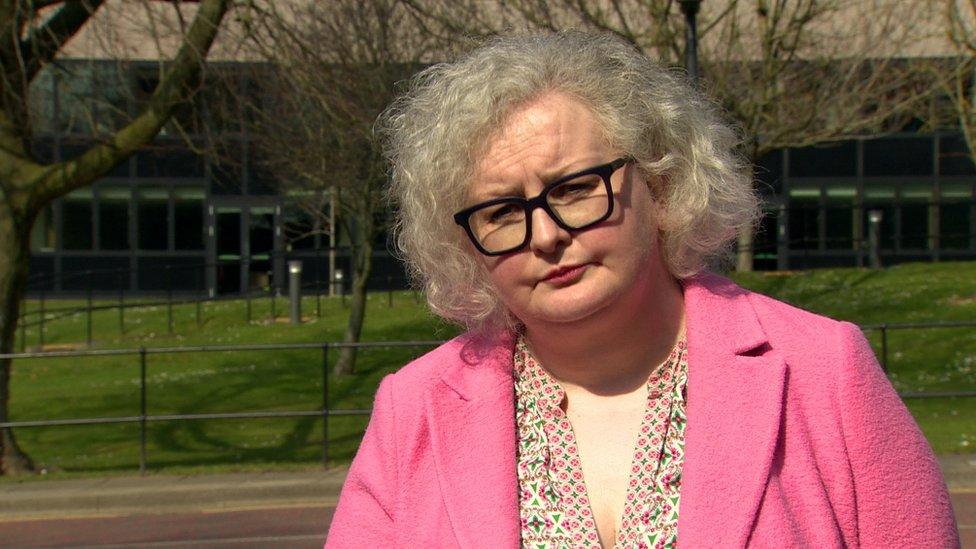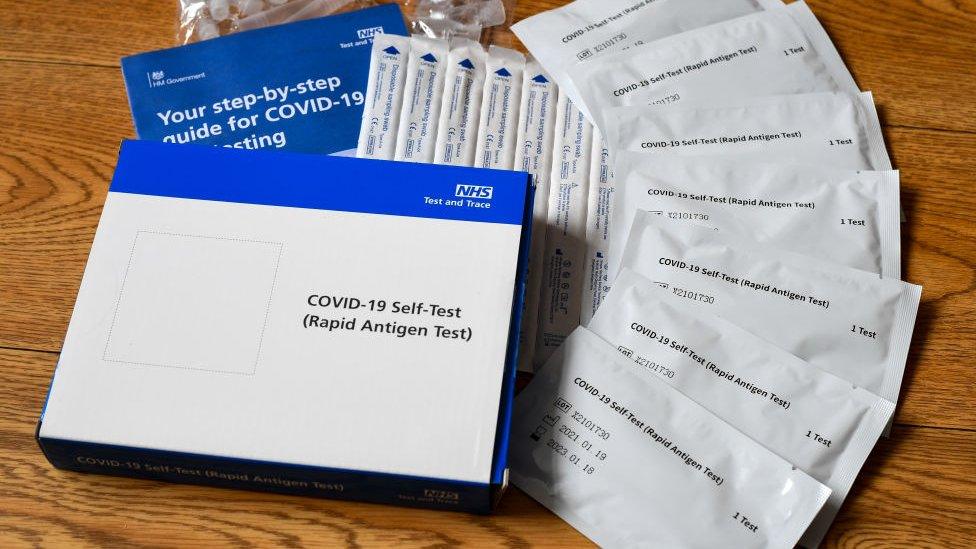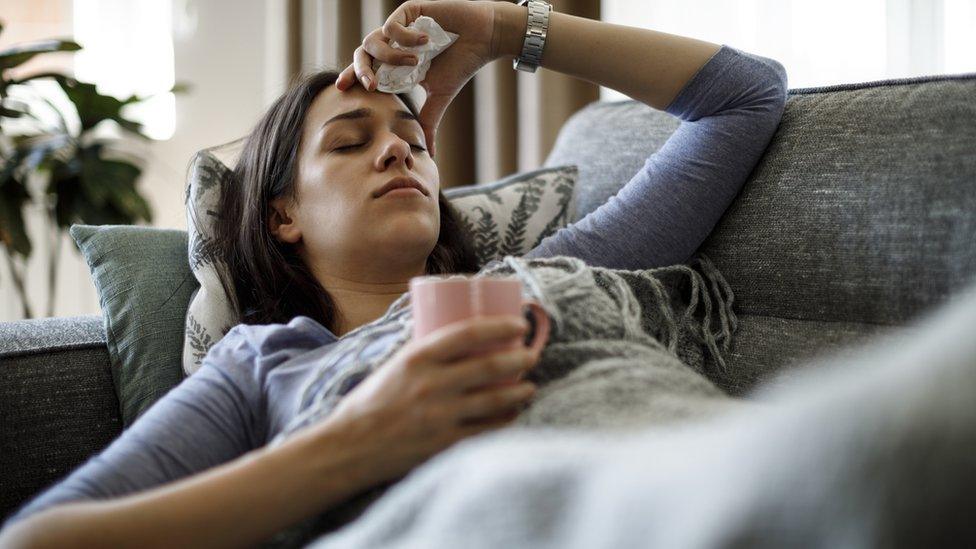Covid-19: Free PCR tests to end for most people in NI
- Published
- comments

Covid-19 tests have been available for free during the pandemic
Most people can no longer access a free polymerase chain reaction (PCR) test for Covid-19 in Northern Ireland.
Testing sites across Northern Ireland closed on Friday.
Lateral flow tests (LFTs) will continue to be free for people displaying Covid-19 symptoms, people visiting high-risk settings and those providing close personal care.
The deputy chief medical officer, Dr Lourda Geoghegan, said it was "exactly the right time" to make the change.
LFTs will continue to be available free of charge from more than 500 community pharmacies across Northern Ireland or by ordering online.
Anyone eligible for Covid-19 treatments, such as those at higher risk, should take a lateral flow test as soon as symptoms develop.
The Department of Health said this group will still be prioritised for testing.
"We're not ending testing, we're actually just transitioning our testing to a more targeted and more focused approach," Dr Geoghegan said.
"It is exactly the right time to change to this more focussed approach."
She said although transmission remains high, the "risk of serious illness has been significantly reduced" due to vaccines and new Covid-19 treatments.
Contact tracing in the wider community also ended on Friday, although anyone who tests positive should continue to report their result.
Those who are household contacts are asked only to take a test if they become aware of symptoms; this applies to both vaccinated and unvaccinated household contacts.

Dr Geoghegan says the changes are proportionate and necessary at this stage of the pandemic
Dr Geoghegan said testing could be ramped up again by the Department of Health if needed.
"This change in testing and in contact tracing is accompanied by the development of a very strong contingency plan so we will retain the capability to scale back up our testing should we need it and, of course, if a variant of concern was identified either here or some other part of the UK or Ireland and we needed to scale back up we would do exactly that."
She added that it as vital that "those at higher risk and who may be eligible for Covid-19 treatments, take a lateral flow test as soon as symptoms develop, even if symptoms are mild, as treatments should commence quickly following a positive test result".

Lateral flow tests will continue to be free for people in certain circumstances
David Farren, the chair of the British Medical Association's consultants' committee in Northern Ireland, said the pandemic is not yet over.
"Covid is here to stay and we will continue to have our lives disrupted by it," he said.
"If you're walking out and about, and you're passing 50, 60 people in the street, there's a fair chance you've passed someone who's positive with Covid and you have not known it, so you have had that exposure, and the end of contact tracing means that Covid will spread as a result of this decision.
"The more Covid is in the community, the more numbers end up in hospitals, the more people end up in intensive care, and the more people who will sadly die."
'New realities of pandemic'
Roger Pollen, from the Federation of Small Businesses, said some businesses explained they would pay to have their workers tested, but it would not be affordable for all employers.
He added: "There are some members, especially in the heavily-regulated areas such as childcare, who are concerned that without the ability to test they could find absences affecting their workforce."
Health Minister Robin Swann previously said the changes reflect the "new realities of the pandemic".
"The risk posed by the virus at the present time does not justify testing and isolating large swathes of the population at the levels that we have seen to date in the past two years," he added.
"Test and trace will continue to have a key role and will be used in a more focused and targeted way to support and protect our most vulnerable."
Related topics
- Published3 May 2022

- Published5 April 2022
